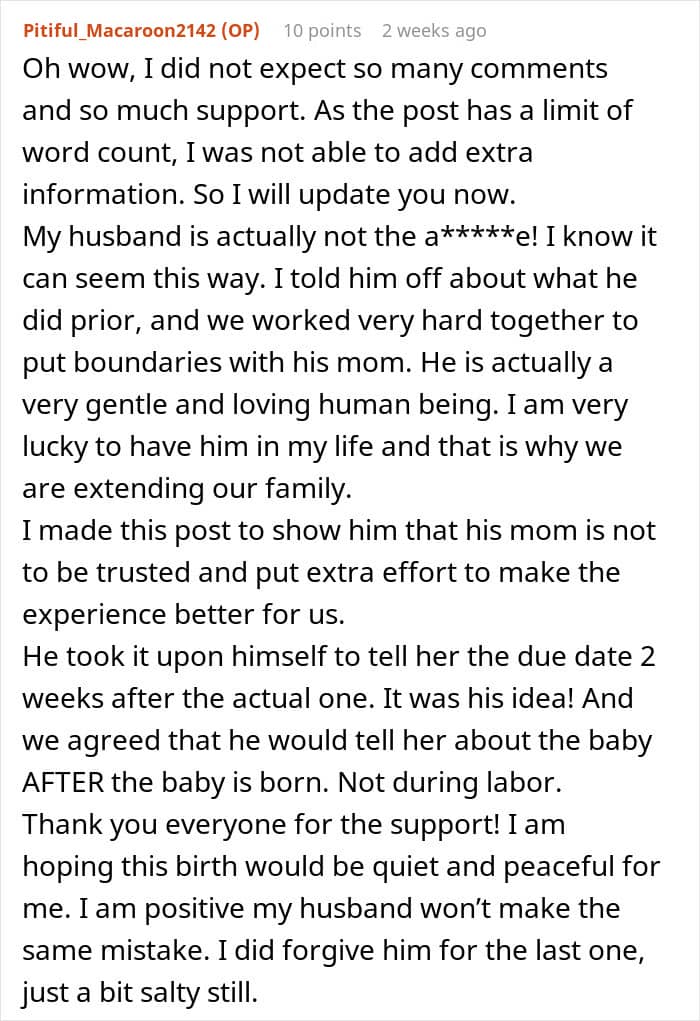Once future parents announce that they’re expecting a baby, they usually get overwhelmed with all sorts of questions. While it’s natural for loved ones to care and be curious about the baby-to-be, expecting parents might feel uncomfortable sharing everything about the pregnancy and prefer to keep some things private.
This woman decided to do the same with her mother-in-law, as her behavior during her first pregnancy made the whole experience far from magical. However, after a while, she started to doubt her choice and turned online for unbiased opinions.
Scroll down to find the full story and conversation with licensed clinical psychologist Dr. Lilit Ayrapetyan, licensed clinical social worker at Psychology Partners Group, Emily Mudge, and licensed marriage and family therapist Heidi McBain, LPC, PMH-C, MMHPC, who kindly agreed to chat with us more about keeping pregnancy more private.
RELATED:Expectant parents often receive unsolicited questions and advice
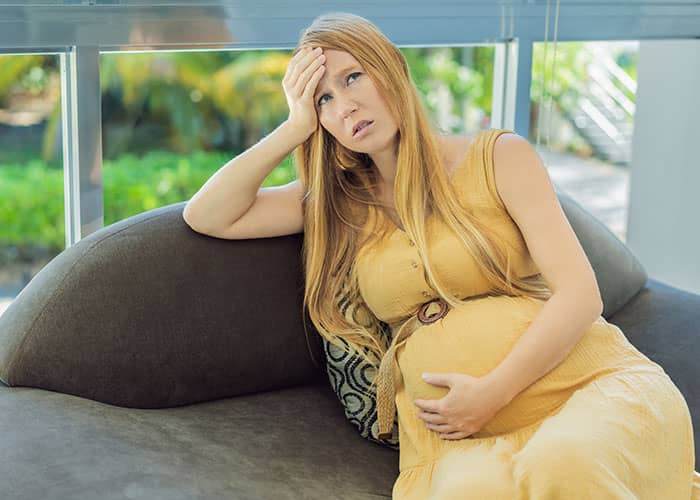
Image credits: galitskaya / freepik (not the actual photo)
To avoid this with her MIL, this pregnant woman decided to keep her in the dark about it
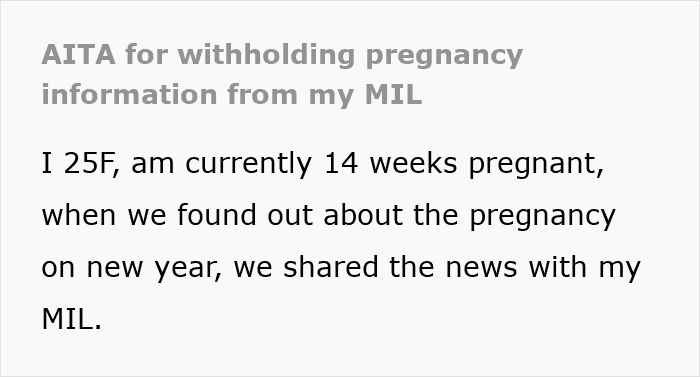


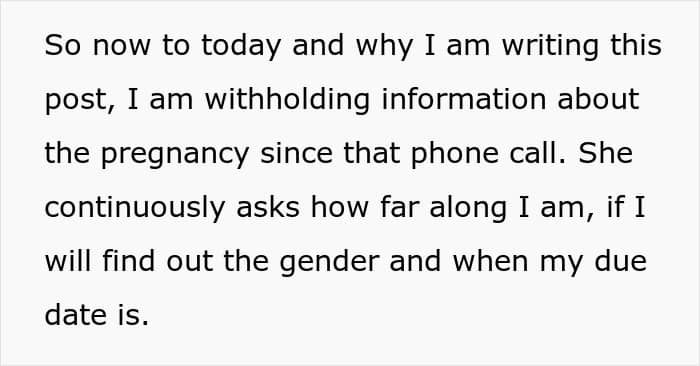
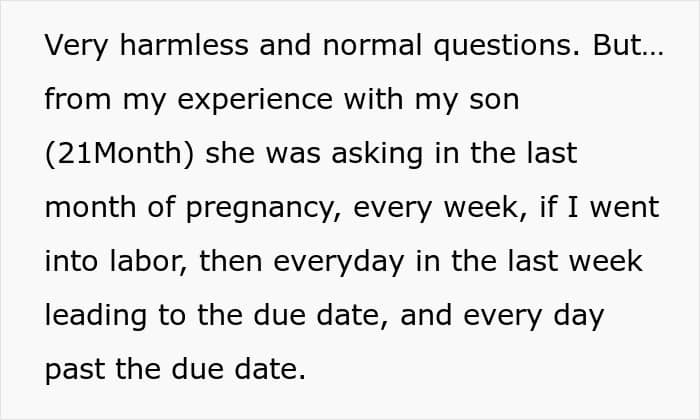

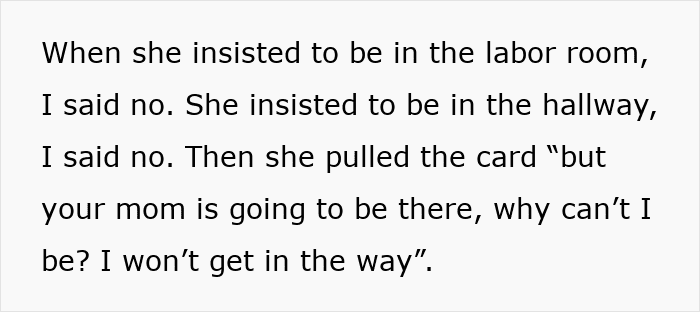
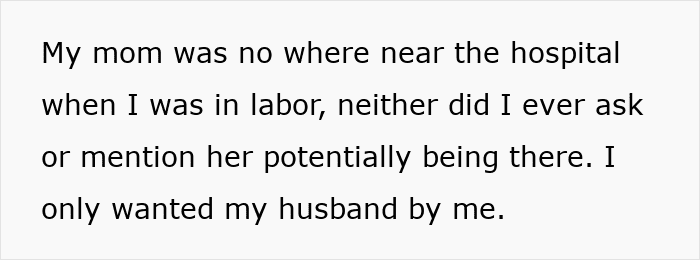
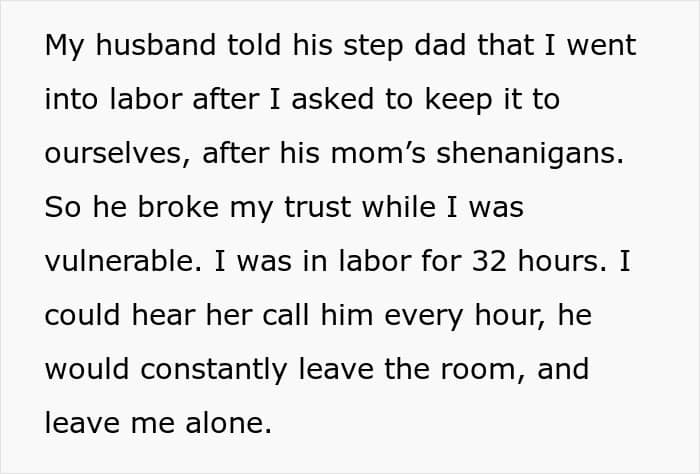
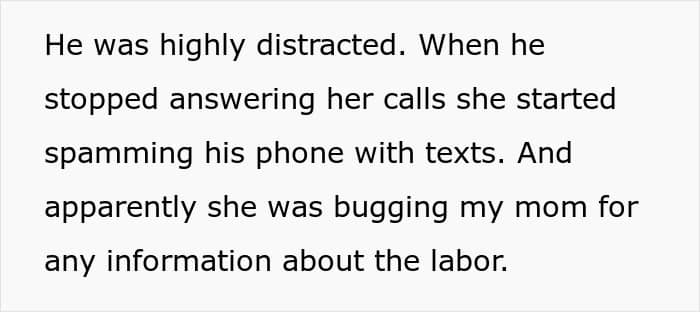

Image credits: wavebreakmedia_micro / freepik (not the actual photo)


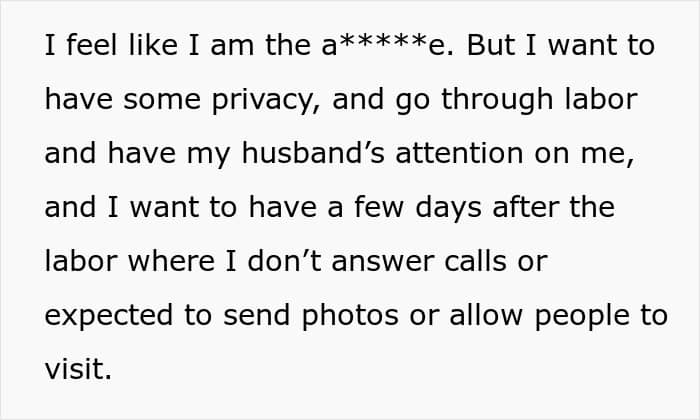

Image credits: Pitiful_Macaroon2142
“The expectation that expectant parents share their journey with the world, places an unfair burden on them”

Image credits: gpointstudio / freepik (not the actual photo)
Sharing about major life events like pregnancy can feel like a given or even a requirement. However, in the particular case of carrying a baby (when it’s already as hard as it is), unwanted attention from (mostly) well-meaning loved ones can be overwhelming and stressful. So, to avoid added pressure, expecting parents might choose to keep it more private and gain a bit more peace and personal space during this special time.
“As both a parenting expert and mother to three children, I can tell you that with all the joy and excitement having a baby brings, there is no shortage of stress that comes along with the ride. From pregnancy hormones, to morning sickness, swollen feet and a growing abdomen, the expectation that expectant parents share their journey with the world, places an unfair burden on them as they navigate this complex moment in their lives,” says licensed clinical social worker at Psychology Partners Group, Emily Mudge.
“There are many reasons expectant parents may choose to keep their pregnancy private. Pregnancy can be scary. Parents may be concerned that they will have complications, experience or have experienced pregnancy loss, or have a history of infertility. Some may fear a loss of control from getting unwanted advice and judgement from family and friends,” she explains.
Keeping the pregnancy more private allows expectant parents for better emotional regulation during a time of significant hormonal and life changes, says licensed clinical psychologist Dr. Lilit Ayrapetyan. “It creates space for the expectant parents to process their own feelings without external pressure or judgment. This approach can reduce anxiety triggered by others’ opinions and protect the parents’ autonomy in making decisions about their pregnancy and parenting. For many, privacy facilitates more authentic bonding with their partner and developing baby.”
It’s important to handle boundary-overstepping loved ones with patience and understanding

Image credits: shurkin_son / freepik (not the actual photo)
For some loved ones, the fact that expecting parents would like to set healthy boundaries around their pregnancy might be harder to understand. “It is important when communicating your desire for privacy to acknowledge the well-meaning intent of your family and friends. Approach the conversation from a place of love, use clear and direct language and explain your reasons for wanting to maintain your privacy,” advises Mudge.
“I recommend framing privacy needs in terms of self-care rather than exclusion. Use “I” statements such as “I’m finding I need more quiet time during this transition” rather than statements that might sound accusatory. Acknowledge their care and excitement while clearly stating your boundaries. Offering alternative ways to connect that feel comfortable for you can also help soften the message,” adds Dr. Ayrapetyan.
However, holding these boundaries isn’t always easy, especially around people who expect life to go their way, says licensed marriage and family therapist Heidi McBain, LPC, PMH-C, MMHPC. “From a place of loving kindness, restate the same boundary to your family members. We also need to learn to be comfortable with the uncomfortable feelings surrounding disappointing others, which is often part of the deeper work surrounding boundary setting.”
“Consistency is key when reinforcing boundaries,” notes Dr. Ayrapetyan. “When boundaries are violated, respond with calm, brief reminders of your needs without extensive justification. Creating a simple script like “We’re not sharing those details right now, but we appreciate your interest” can help in repetitive situations. For persistent boundary-crossers, sometimes reducing contact temporarily may be necessary, while explaining this is about your wellbeing during a vulnerable time, not about rejecting them personally.”
Lastly, Mudge warns that keeping a pregnancy more private may not be for everyone, as it can cause potential feelings of isolation and lack of support from loved ones. “Pregnancy is a time of joy and excitement, and by keeping your pregnancy from others, you may potentially miss opportunities to celebrate and connect with others. Having support from a healthy network of family and friends can lead to better emotional and physical outcomes for both you and your unborn child,” she says.
“If you feel yourself slipping into a depression or feeling socially isolated, there are things you can do that might add value and meaning to your life. Prioritize your self-care regimen by doing things that make you feel good and bring you joy. Should you still be experiencing significant distress, contact a licensed mental health professional for professional support.”
Many readers supported the woman’s decision

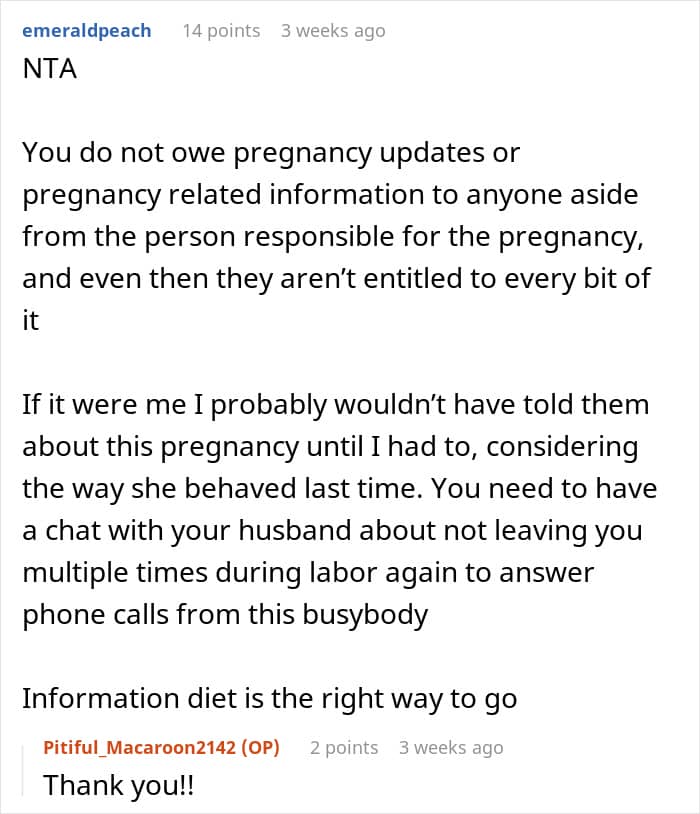

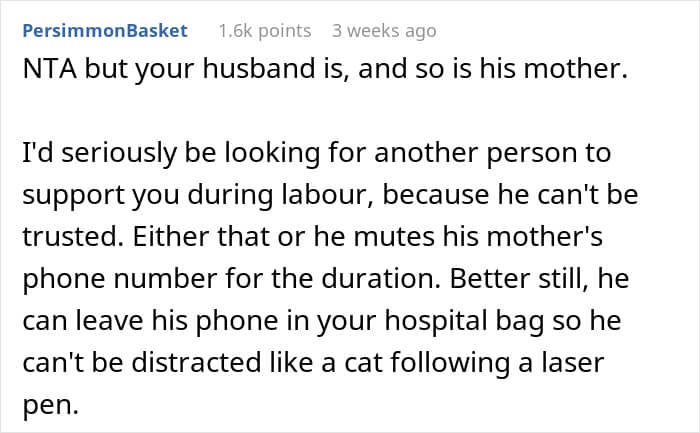
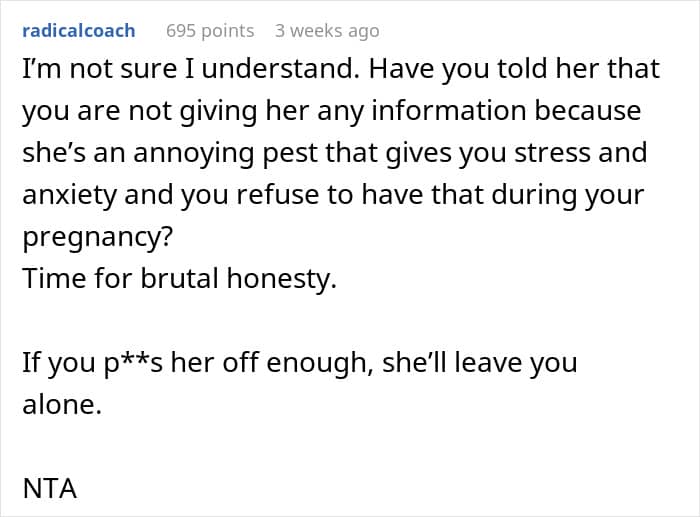



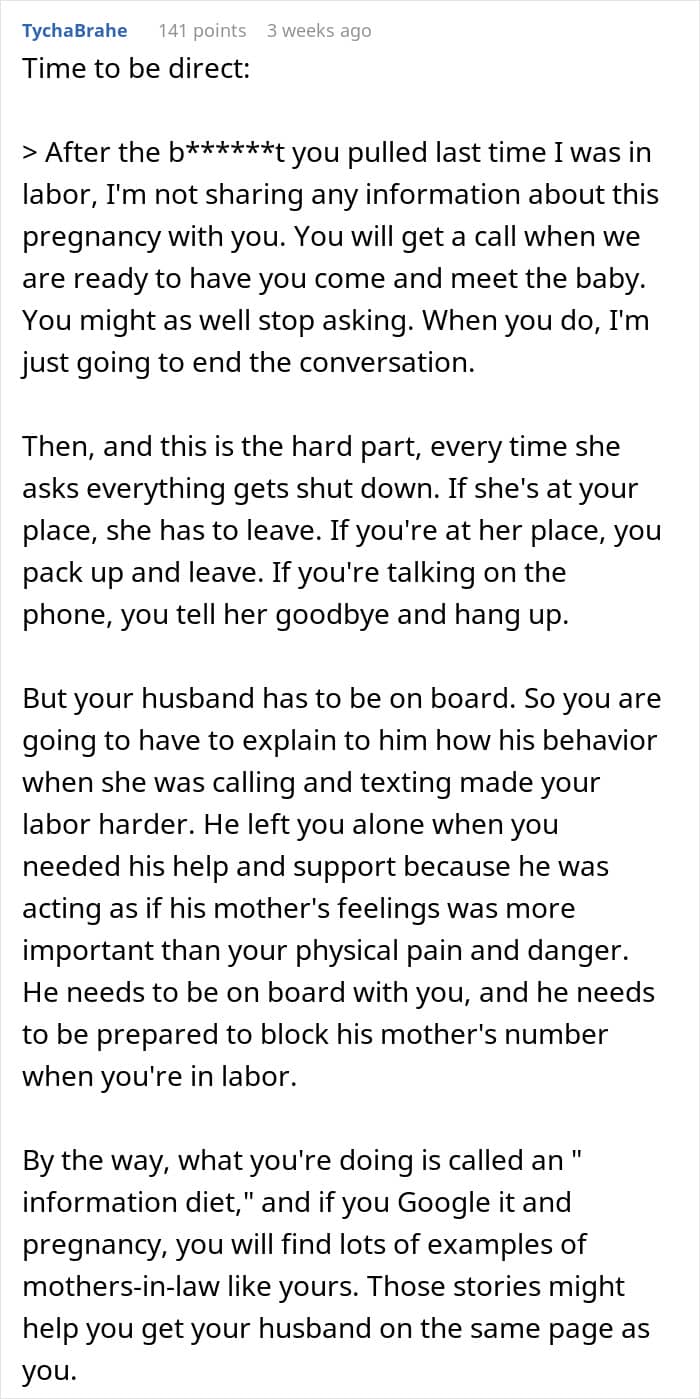






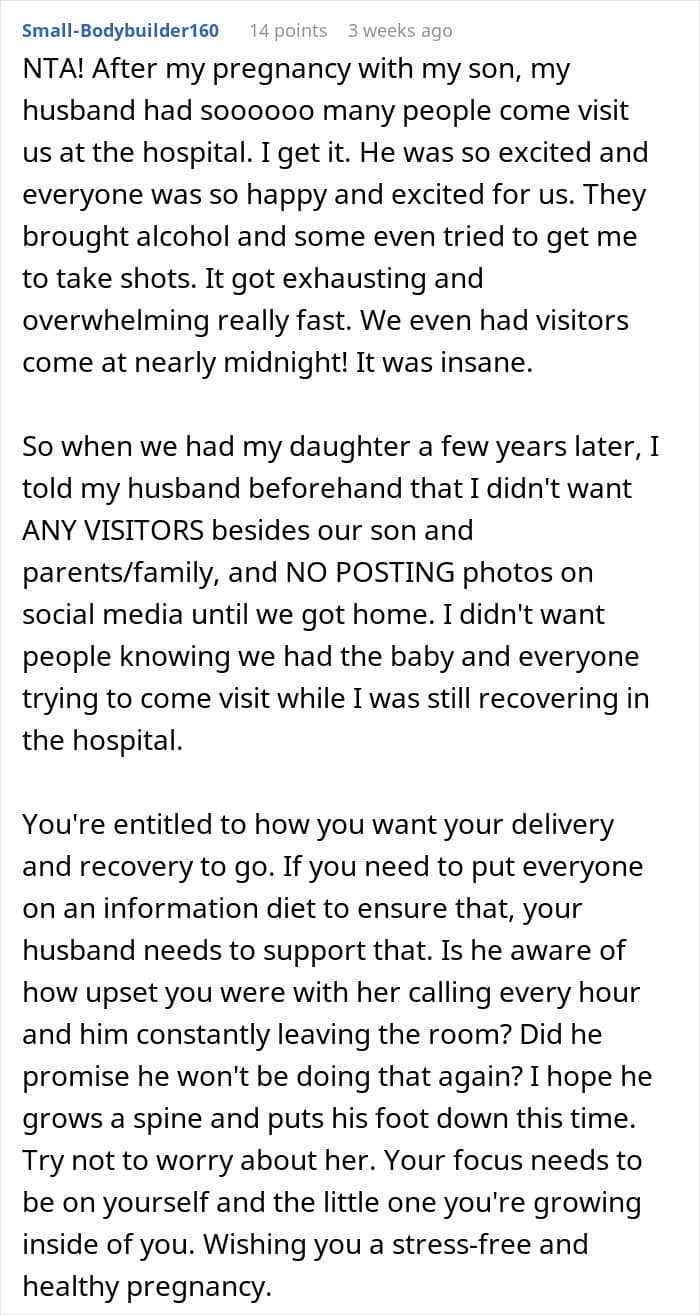
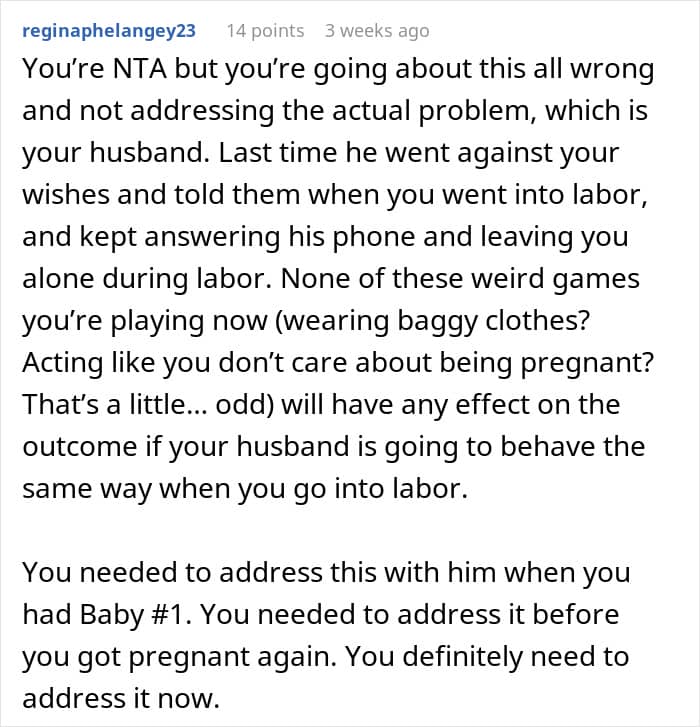

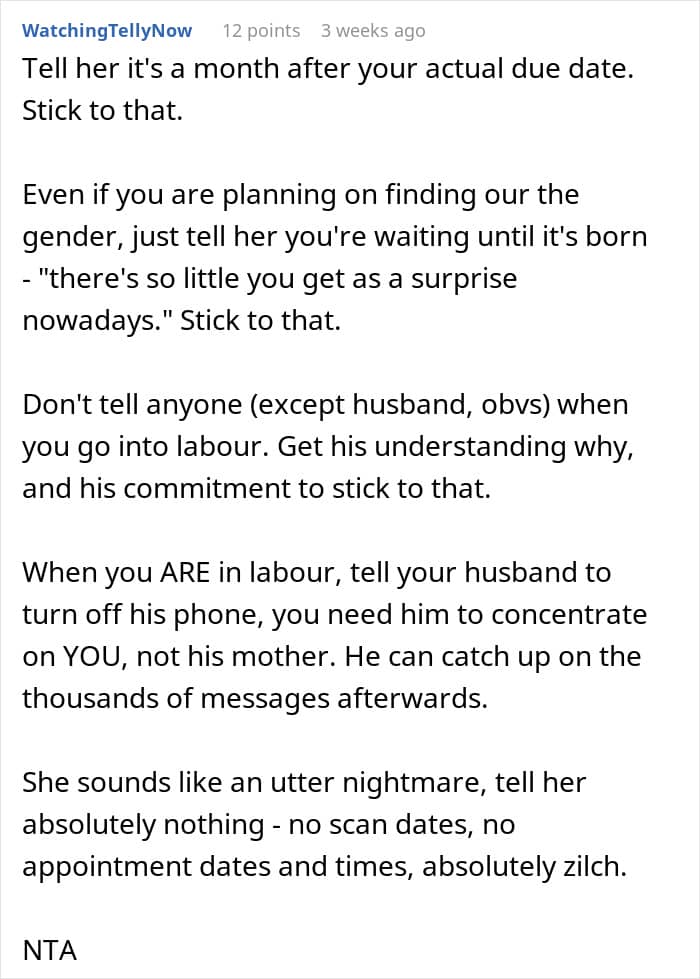


Whereas some thought that everyone was at fault

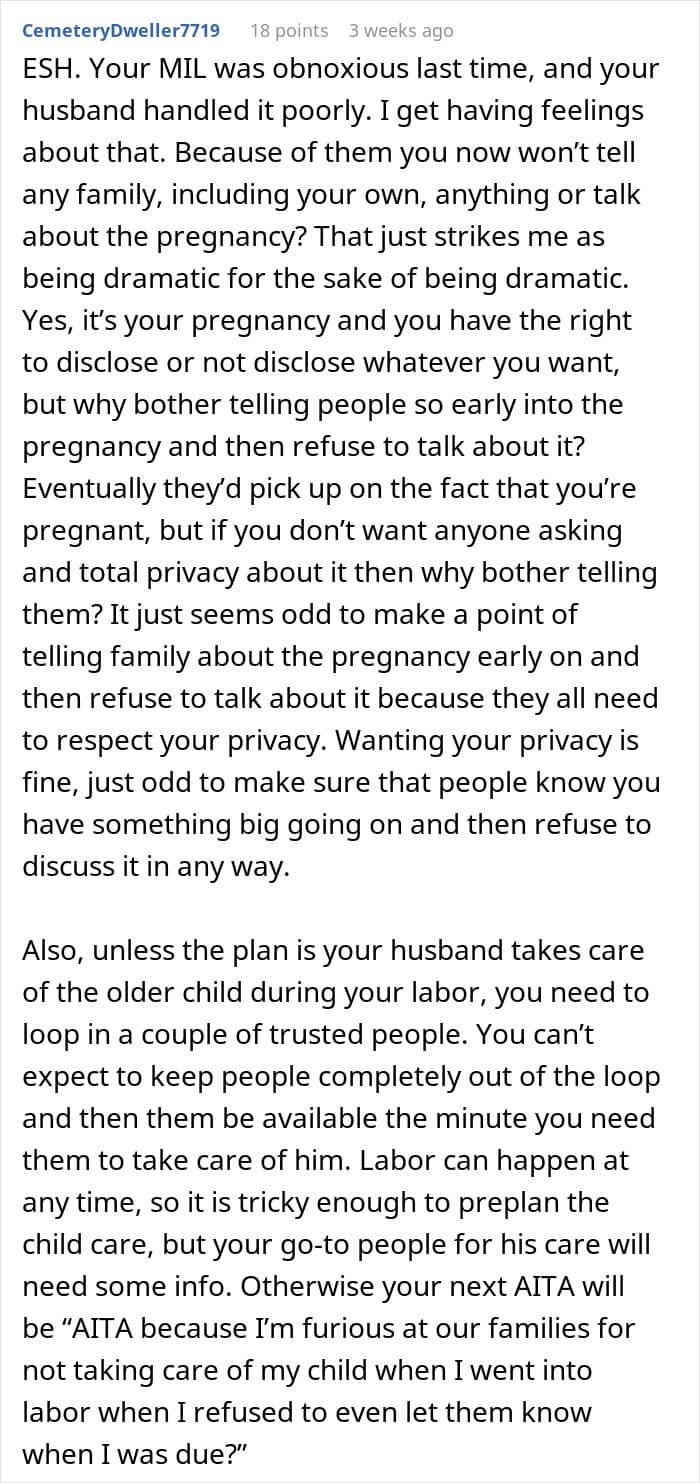
Meanwhile, others blamed the expectant mother
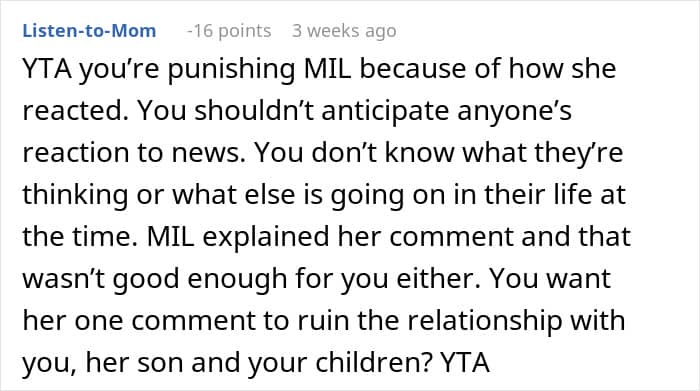


Lastly, the original poster updated the readers in a comment
